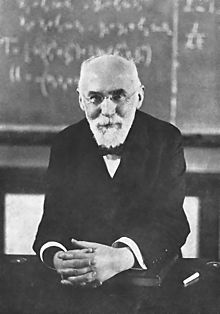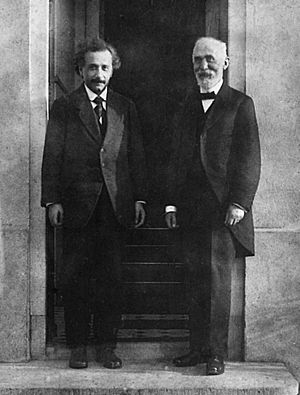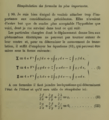Hendrik A. Lorentz facts for kids
Quick facts for kids
Hendrik Antoon Lorentz
|
|
|---|---|
 |
|
| Born | 18 July 1853 |
| Died | 4 February 1928 (aged 74) Haarlem, Netherlands
|
| Nationality | Netherlands |
| Alma mater | University of Leiden |
| Known for | Lorentz transformation Theory of EM radiation Lorentz force Lorentz contraction |
| Awards | Nobel Prize for Physics (1902) Rumford Medal (1908) Franklin Medal (1917) Copley Medal (1918) |
| Scientific career | |
| Fields | Physics |
| Doctoral advisor | Pieter Rijke |
| Doctoral students | Geertruida L. de Haas-Lorentz Adriaan Fokker Leonard Ornstein Hendrika Johanna van Leeuwen |
Hendrik Antoon Lorentz (born July 18, 1853 – died February 4, 1928) was a brilliant Dutch physicist. He is famous for his important work on how light and matter interact. In 1902, he won the Nobel Prize in Physics with Pieter Zeeman. They received the award for discovering and explaining the Zeeman effect. This effect shows how light changes when it passes through a magnetic field.
Contents
Life of a Physicist
Early Years and Education
Hendrik Lorentz was born in Arnhem, a city in the Netherlands. His father was Gerrit Frederik Lorentz. When Hendrik was nine years old, his mother passed away. His father later married Luberta Hupkes.
Lorentz was a very smart student. He went to Leiden University and studied physics. He later became a professor there.
Groundbreaking Discoveries in Physics
Lorentz made many important contributions to physics. His ideas helped us understand how electricity, magnetism, and light are connected. He developed equations that describe how electric and magnetic fields behave. These equations are still used today.
Lorentz and Special Relativity

One of Lorentz's most famous ideas is the Lorentz transformation. These are a set of equations that explain how space and time can look different to observers who are moving at different speeds. For example, they show how length can appear to shrink and time can appear to slow down for objects moving very fast.
In 1905, another famous physicist, Albert Einstein, used many of Lorentz's ideas. Einstein then developed his own theory of special relativity. Because Lorentz's work was so important to Einstein's theory, it was sometimes called the Lorentz-Einstein theory.
Lorentz and General Relativity
Lorentz was also a strong supporter of Einstein's work on general relativity. This theory explains how gravity works. Lorentz wrote several research papers and often talked with Einstein about these complex ideas. He even tried to combine Einstein's ideas with other important physics principles.
Later Life and Passing
In January 1928, Hendrik Lorentz became very ill. He passed away shortly after, on February 4, 1928. His work continues to influence physics today.
Images for kids
-
Lorentz' theory of electrons. Formulas for the Lorentz force (I) and the Maxwell equations for the divergence of the electrical field E (II) and the magnetic field B (III), La théorie electromagnétique de Maxwell et son application aux corps mouvants, 1892, p. 451. V is the velocity of light.
-
Lorentz-monument Park Sonsbeek in Arnhem, the Netherlands
See also
 In Spanish: Hendrik Antoon Lorentz para niños
In Spanish: Hendrik Antoon Lorentz para niños
 | Isaac Myers |
 | D. Hamilton Jackson |
 | A. Philip Randolph |







